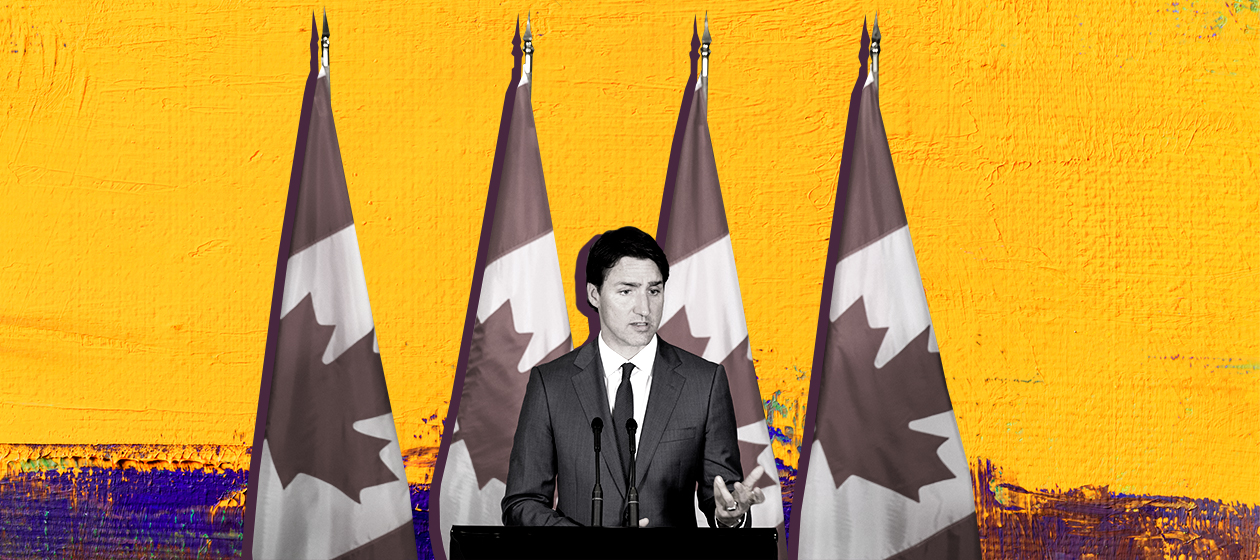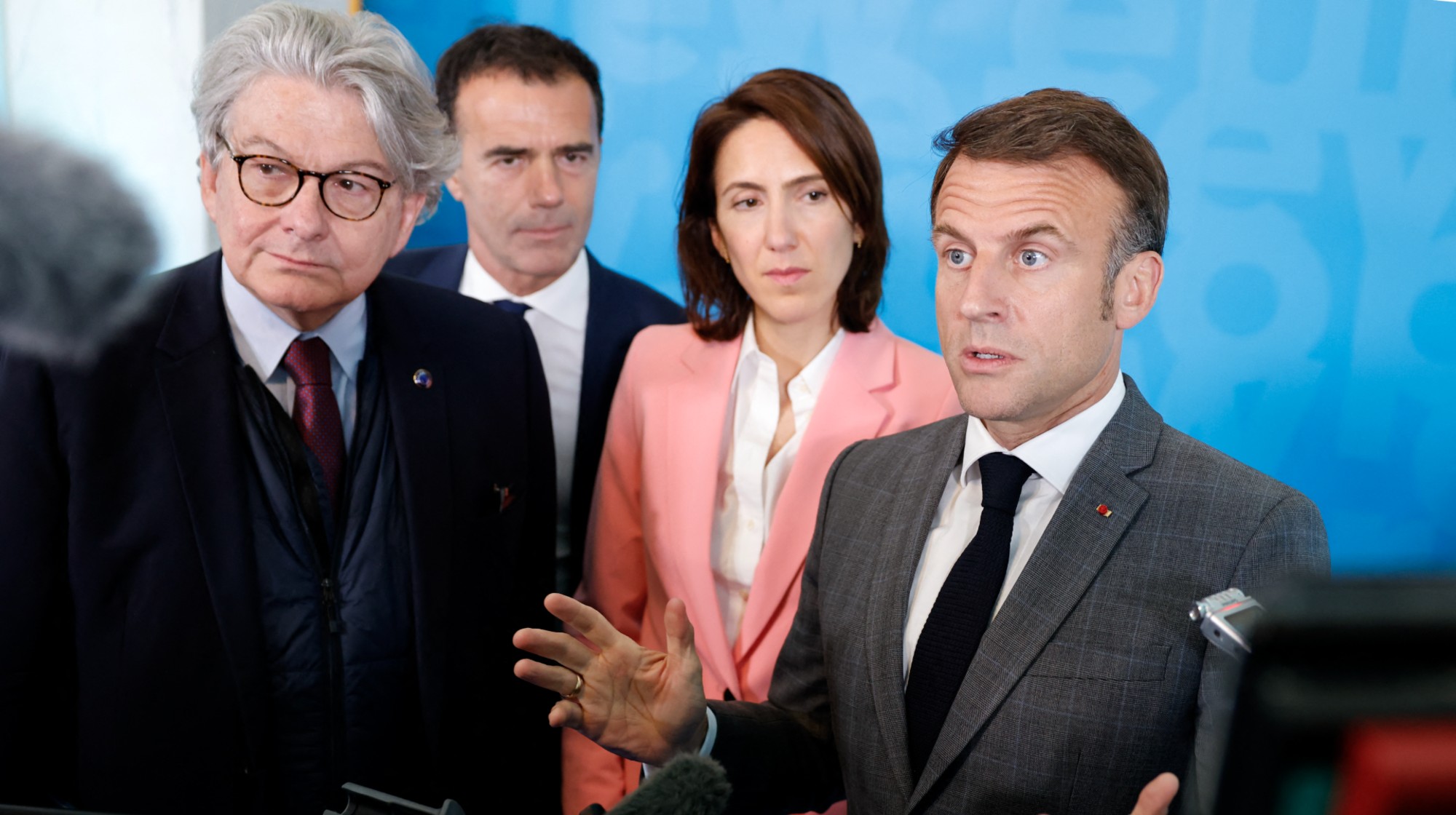What Canada's Liberal sweep means for the United States
Justin Trudeau is taking over in Canada, promising to mend ties with the U.S. — at least until the Trump administration


On Monday, Canada embraced its own version of hope and change.
Justin Trudeau, the 43-year-old telegenic leader of the down-on-their-luck Liberals, led his party to an unexpectedly large victory, after lagging in the polls until just last week. He ran a relentlessly positive campaign, and noted in his victory speech Monday night that "Sunny ways, my friends, sunny ways, this is what positive politics can do." Not coincidentally, one of Trudeau's campaign advisers was David Axelrod, the mastermind behind President Obama's 2008 victory south of the 49th parallel.
But Trudeau, a former teacher, also shares something in common with Obama's conservative predecessor, George W. Bush: dynasty. Trudeau is following his late father, Pierre Trudeau, into the prime minister's house, where Justin was born and spent much of his childhood during his legendary father's 15 years as leader of Canada. Like Bush, Trudeau's opponents tried to paint him as an intellectual lightweight, and voters didn't seem to buy it or didn't care.
The Week
Escape your echo chamber. Get the facts behind the news, plus analysis from multiple perspectives.

Sign up for The Week's Free Newsletters
From our morning news briefing to a weekly Good News Newsletter, get the best of The Week delivered directly to your inbox.
From our morning news briefing to a weekly Good News Newsletter, get the best of The Week delivered directly to your inbox.
But Justin Trudeau isn't Bush or Obama or his father, and Canada isn't the United States. Canada is the U.S.'s closest neighbor and largest trading partner, however, so what happens in Ottawa matters in Washington. What will the Liberal landslide in Canada, and the exit of Conservative Prime Minister Stephen Harper, mean for its southern neighbor? Here's a brief look at some possible fallout.
1. U.S.-Canada relations will be warmer, at least for another year.
During the campaign, Trudeau pledged to improve Canada's relationship with the U.S., which is at a recent low due to disagreements between the Obama and Harper governments over topics ranging from climate change to the environment. The proposed rekindling of warm feelings between the two governments should last at least until the end of the Obama administration, but you can see it cooling pretty quickly if, say, a President Donald Trump takes office in January 2017.
2. Obama will face less pressure on Keystone XL but more on the Trans-Pacific Partnership.
A free daily email with the biggest news stories of the day – and the best features from TheWeek.com
One of the sore points between Obama and Harper was the Keystone XL pipeline, which would send Canadian tar sands down into the U.S. for processing and shipping or consumption. Obama hasn't approved the pipeline, while Harper, The Wall Street Journal notes, called the pipeline a "no brainer." Trudeau also supports Keystone but has said it isn't worth straining bilateral relations over. The huge Pacific Rim free trade deal is a point of agreement between Obama and Harper, and Trudeau hasn't taken a definitive stand on TPP yet and won't until the full text is made public. Trudeau generally supports free trade, and has said positive things about TPP, but the possibility that the new Liberal government won't ratify the agreement is another question mark hanging over Obama's biggest foreign trade accomplishment.
3. Canada's proposed infrastructure spending could marginally boost the U.S. economy.
Under Harper, Canada has become more dependent on mining and oil drilling while its manufacturing sector has declined. The hit to the Canadian economy when oil prices dropped was one of the factors in Harper's loss, but so was Trudeau's plan to revive the economy and boost the manufacturing and construction sectors by investing in infrastructure and running a modest deficit for his first three years in office to finance it. He also has pledged to cut taxes on the middle class by raising them on the top 1 percent of earners. Given the key trade relationship between the two neighbors, any improvement in Canadian consumption and consumer confidence should seep down into the U.S. economy.
4. America's legal-marijuana movement might get a boost.
Harper is a strong and vocal opponent of marijuana, legal for medical purposes in Canada, while Trudeau has promised to legalize it nationwide and regulate its sale and distribution. Washington, Colorado, Alaska, and Oregon — the four states where marijuana is legal for any purpose — have a combined population of about 17 million, and if regulating and taxing pot doesn't have any terrible downside in those laboratories of democracy, the legalization movement will probably spread. Canada has 35 million people, and if Trudeau does manage to legalize the drug for recreational purposes and it goes smoothly, that's a big argument in favor of at least decriminalizing marijuana throughout the U.S. Canada, after all, legalized same-sex marriage in 2005, the institution of marriage didn't crumble, and America followed suit eight years later.
Peter has worked as a news and culture writer and editor at The Week since the site's launch in 2008. He covers politics, world affairs, religion and cultural currents. His journalism career began as a copy editor at a financial newswire and has included editorial positions at The New York Times Magazine, Facts on File, and Oregon State University.
-
 ‘Care fractures after birth’
‘Care fractures after birth’instant opinion Opinion, comment and editorials of the day
-
 Shots fired in the US-EU war over digital censorship
Shots fired in the US-EU war over digital censorshipIN THE SPOTLIGHT The Trump administration risks opening a dangerous new front in the battle of real-world consequences for online action
-
 What will the US economy look like in 2026?
What will the US economy look like in 2026?Today’s Big Question Wall Street is bullish, but uncertain
-
 Bari Weiss’ ‘60 Minutes’ scandal is about more than one report
Bari Weiss’ ‘60 Minutes’ scandal is about more than one reportIN THE SPOTLIGHT By blocking an approved segment on a controversial prison holding US deportees in El Salvador, the editor-in-chief of CBS News has become the main story
-
 Has Zohran Mamdani shown the Democrats how to win again?
Has Zohran Mamdani shown the Democrats how to win again?Today’s Big Question New York City mayoral election touted as victory for left-wing populists but moderate centrist wins elsewhere present more complex path for Democratic Party
-
 Millions turn out for anti-Trump ‘No Kings’ rallies
Millions turn out for anti-Trump ‘No Kings’ ralliesSpeed Read An estimated 7 million people participated, 2 million more than at the first ‘No Kings’ protest in June
-
 Ghislaine Maxwell: angling for a Trump pardon
Ghislaine Maxwell: angling for a Trump pardonTalking Point Convicted sex trafficker's testimony could shed new light on president's links to Jeffrey Epstein
-
 The last words and final moments of 40 presidents
The last words and final moments of 40 presidentsThe Explainer Some are eloquent quotes worthy of the holders of the highest office in the nation, and others... aren't
-
 The JFK files: the truth at last?
The JFK files: the truth at last?In The Spotlight More than 64,000 previously classified documents relating the 1963 assassination of John F. Kennedy have been released by the Trump administration
-
 'Seriously, not literally': how should the world take Donald Trump?
'Seriously, not literally': how should the world take Donald Trump?Today's big question White House rhetoric and reality look likely to become increasingly blurred
-
 Will Trump's 'madman' strategy pay off?
Will Trump's 'madman' strategy pay off?Today's Big Question Incoming US president likes to seem unpredictable but, this time round, world leaders could be wise to his playbook
